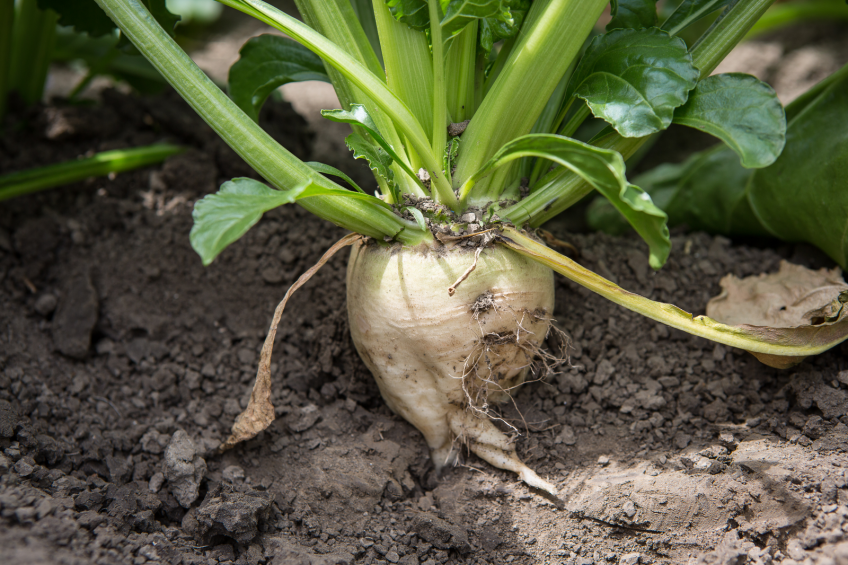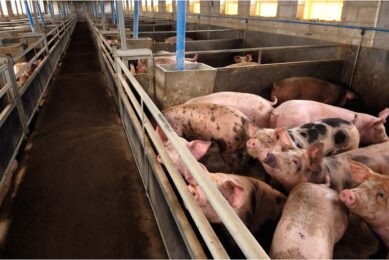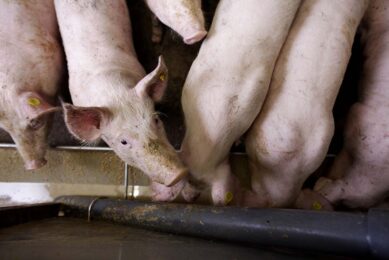Sugar beet pulp in grower pig diets

Canadian researchers have found out that grower pigs can maintain growth rate when cereals are replaced by sugar beet pulp at a ratio of 60 g/kg.
This ratio corresponds to a value of 65 g of acid detergent fibre per kg, the researchers conclude in their recent publication in Animal Feed Science & Technology.
Finding alternative feedstuffs for swine
The scientists embarked on their study because dietary inclusion of fibrous alternative feedstuffs in swine diets to replace cereal grains can be economically important for pork producers.
They added in their introduction that ‘limits for young pigs to ingest high-fibre diets are not well established’.
Increasing inclusion of sugar beet pulp
The researchers describe how the effects of increasing inclusion of sugar beet pulp by substituting wheat grain on diet nutrient digestibility and growth performance of young pigs were evaluated. Altogether 220 pigs were involved in the trial. The animals had an initial bodyweight of 7.5 kg and were fed phase 1 diets for 2 weeks (day 1-14) starting 1 week after weaning at 19 days of age. Sequentially they were fed phase 2 diets for 3 weeks (day 15-35).
In total, 5 pelleted wheat-based diets including 0, 60, 120, 180 and 240 g sugar beet pulp/kg were fed. The sugar beet pulp contained (as-fed) 90 g crude protein and 249 g acid detergent fibre/kg.
Formulation of phase 1 and phase 2 diets
The article describes how phase 1 and 2 diets were formulated to provide 9.6 and 9.4 MJ net energy/kg and 1.3 and 1.2 g standardised ileal digestible Lys/MJ net energy, respectively.
Diets were balanced for net energy by increasing canola oil from 5 to 50 g/kg for phase 1 and 2 diets and for amino acids by increasing crystalline amino acids.
Impacts of increasing sugar beet pulp
The scientists found that increasing dietary inclusion of sugar beet pulp up to 240 g/kg increased acid detergent fibre content of diets to 101 g/kg, linearly reduced apparent total tract digestibility coefficient of gross energy by 0.04 and of crude protein by 0.08 feeding phase 1 diets. In addition, they described how the increase quadratically reduced the apparent total tract digestibility coefficient of gross energy by 0.01 and linearly reduced apparent total tract digestibility coefficient of crude protein by 0.06 feeding phase 2 diets.
The researchers continue, “Increasing inclusion of sugar beet pulp up to 240 g/kg linearly reduced) calculated diet net energy value by 0.35 MJ/kg in phase 1 and quadratically increased calculated diet net energy value by 0.29 MJ/kg in phase 2. Increasing inclusion of sugar beet pulp quadratically reduced average daily feed intake for day 29-35 and linearly reduced average daily gain for day 15-35.”
Effects on feed conversion ratio
The researchers write, “Feed conversion ratio was linearly increased for day 1-7, linearly reduced for day 15-21 and quadratically reduced for day 15-28. Overall (day 1-35), increasing dietary inclusion of sugar beet pulp up to 240 g/kg linearly reduced average daily feed intake and average daily gain by 46 g/d, quadratically reduced feed conversion ratio and linearly reduced final bodyweight at day 35 by 1.1 kg.”
Growth performance 0-60 g/kg
They conclude: “Growth performance did not differ between pigs fed diets containing 0 or 60 g sugar beet pulp/kg. In conclusion, weaned pigs maintained growth performance with diets containing 65 g acid detergent fibre/kg, but not for diets containing up to 101 g acid detergent fibre/kg.”
The article was written by L.F. Wang, E. Beltrarena and R. Zijlstra, attached to the University of Alberta, Edmonton. Dr Beltrarena is also connected to the Alberta Agriculture and Rural Development, the province’s ministry for agriculture and forestry.
Join 18,000+ subscribers
Subscribe to our newsletter to stay updated about all the need-to-know content in the pigsector, three times a week. Beheer
Beheer










 WP Admin
WP Admin  Bewerk bericht
Bewerk bericht